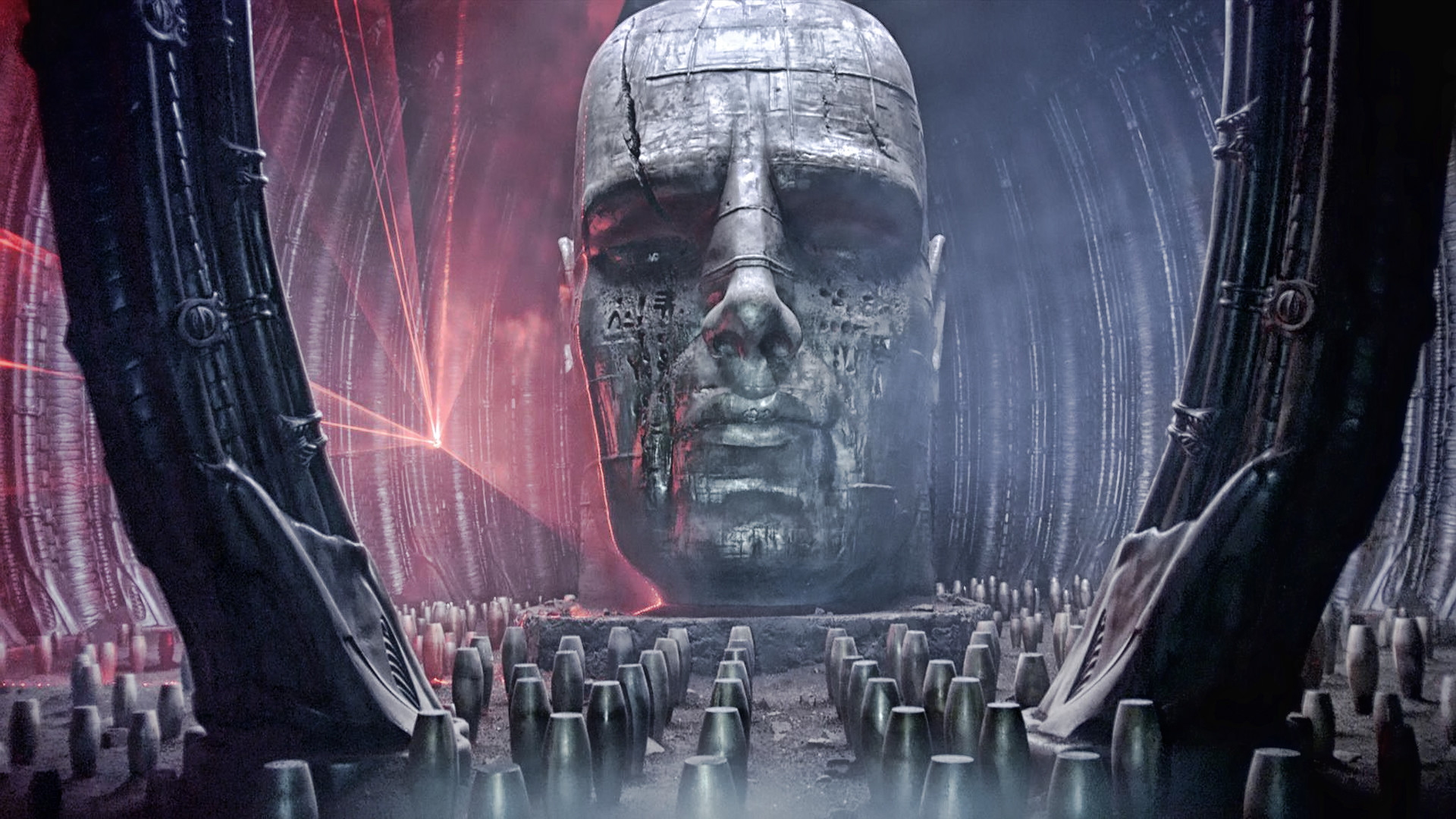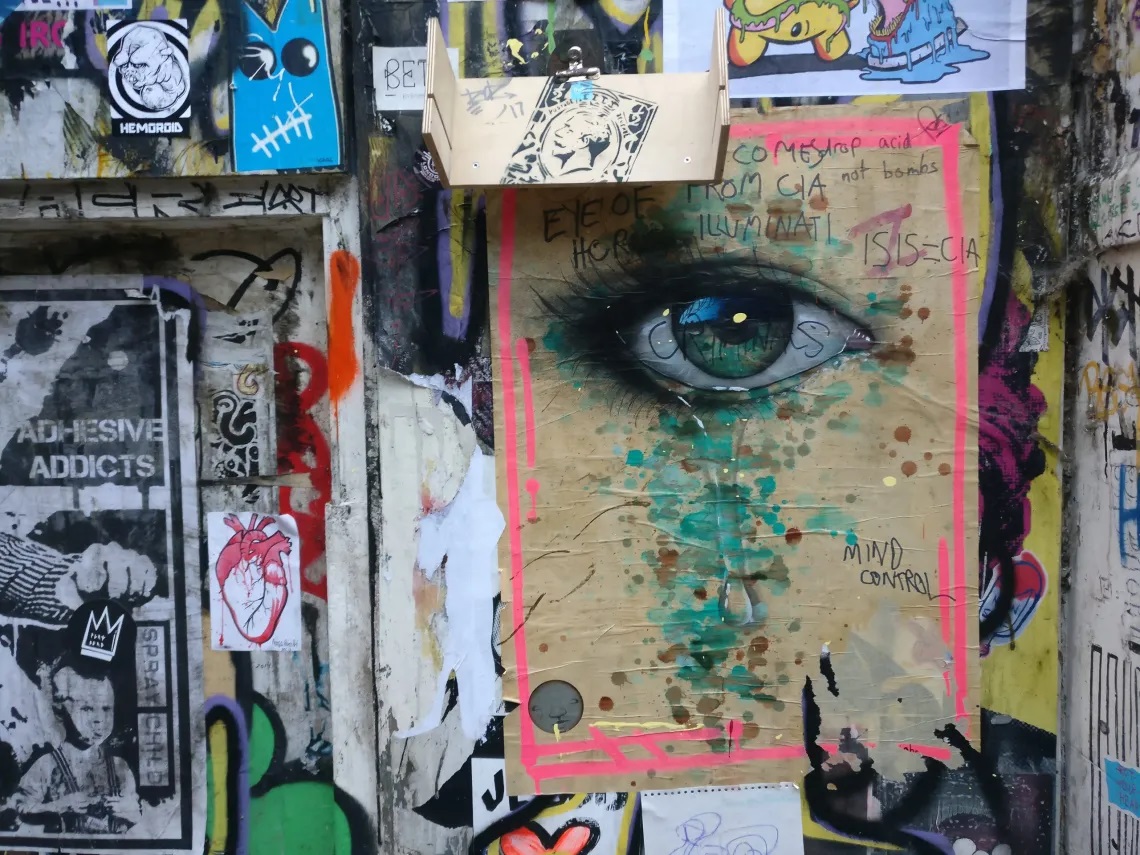Consciousness means sussing onto the fact that my existence – such as it is – is a deterministic old business. I think I’m free but I’m not. I’m compelled to be a particular way every step of the journey and the fact that I don’t generally see that I am determined, the fact that I don’t see that I’m being compelled, doesn’t make me any freer. It actually makes me less free, as Goethe says.
Consciousness can’t mean anything else but this. It can’t mean ‘believing in a delusion’, after all! We might have some kind of fantasy going on in which it is possible to be conscious and yet at the same time have a firm sense of identity / agency as well. We might like to imagine that when we are conscious we will be a self and we will be conscious, that we will be a self and that we will also be a truly volitional being, but that’s not how it works. We can be ‘the volitional self’ it is true, but the self in question isn’t real and the so-called ‘volition’ is really just ‘determinism in disguise’.
This doesn’t sound right of course – if ‘the-self–that–we –experience–ourselves–to–be’ isn’t real then how can it be suffering from the delusion that it has volition when it doesn’t? If it doesn’t exist then how can it be subject to the rule of determinism? This sounds like a glaring contradiction for sure, but that’s only because we’re not seeing things clearly enough. The self doesn’t exist it’s true, but then again neither does determinism. Only freedom exists, only freedom is real; anything else – we might say – is a delusion caused by ‘lack of reality’. Anything else is an optical illusion.
Determinism is a delusion, but it’s a delusion that the self cannot ever escape from; it is a delusion that rightfully belongs to the mind-produced image or idea that we have of ourselves. The self can never escape its ‘conditioning factor’, which is determinism; the self can never escape determinism because the two are the same thing. The self is determinism and determinism is the self – there is no separating the one from the other. We might also think that freedom and determinism are two different things; that they are ‘opposites’, perhaps. This isn’t the case however – determinism is the inverse of freedom which means that it is ‘freedom seen upside-down’, so to speak. Odd as it may possibly seem, we can learn a lot about freedom from the lack of it!
Freedom and determinism are the very same thing therefore. Only in freedom can we have determinism; before we can be unfree we first have to be ‘free to be unfree’. If we don’t like freedom then we’re free to have determinism instead, in other words. In one way we could say that this is ‘a choice’, but really it’s ‘a choice that’s no choice’ – to choose the inverted form of freedom (which is determinism) is to choose freedom after all, because all there is is freedom, whichever way we might ‘opt’ to take it. If we take freedom as being freedom then it is freedom, and if we take freedom in the form of determinism then it is still freedom. Freedom is the precondition for everything, and this means that – ultimately – everything is freedom.
The self – unreal though it might be – is subject to the law of determinism and this means that it is subject, also, to ‘the principle of freedom’. What ‘freedom’ means to the unreal self is one thing and one thing only however – for the self freedom means ‘the freedom to see that it is not real’. This is the only type of genuine freedom it can ever have. The thing is however that this happens to be a form of freedom that we want nothing at all to do with. This is where the open door of our freedom lies and it just so happens that this ‘open door’ is the thing we are most afraid of in the whole wide world! So – just to repeat this key point – the self has only one manifestation of freedom open to it and that is the freedom to see that it doesn’t exist, and this means that freedom is going to be something that the self is always going to be running away from.
This is the inverted situation we find ourselves in therefore – the inverted situation of the self or concrete identity which thinks that it is free when it isn’t. Everything that exists has some sort of relationship with freedom – we might say – and the self (which, from his own perspective at least, seems very much to exist) has the relationship with freedom of ‘running away from it on a full-time basis’. It is what it is by virtue of its ‘denial of unconditional freedom’ therefore. Or as we could also say, it is what it is because of its ‘absolute resistance to change’, since freedom equals ‘the freedom to change’. The self hasn’t any interest in freedom whatsoever (although it pretends to itself as it does) and that is precisely how it gets to be the self.
In this inverted situation we think that we are conscious but we’re not, and we think that we’ve got free will when we haven’t. Instead of ‘free will’ we have ‘the non-negotiable need to avoid ever seeing the truth’, and the truth is that we only get to (apparently) exist by running away from the only freedom we have on a full-time basis. What we call ‘free will’ is the compulsion to avoid seeing the truth, odd though this may sound. If we did see the truth then the one who is seeing the truth also sees – by the same token – that there is no one seeing it, and so it is our ‘refusal’ to do this that keeps us thinking that we are this concrete self.
It’s not really that we ‘refuse’ to see anything of course – that would imply that we have a choice and we don’t. That would imply that the self has free will! We have no freedom ‘not to refuse’; we have no freedom not to do anything that we are compelled to do because that’s what conditioned existence is all about. That’s what ‘being the self’ is all about. It’s in the nature of the self to avoid seeing the truth and the self isn’t free to go against its own nature. If it did that then it wouldn’t be the self. All it can do is obey its own nature and its own nature as to avoid saying the truth, as we keep on saying. This is what makes the self ‘the self’…
‘Seeing the truth’ equals ‘being conscious’ and ‘being conscious’ equals ‘seeing the truth’. It works the same both ways around. This is why the self can’t ever be conscious, and this is also why it can never be free, not ever. To be free is to be free not to be a self and the self doesn’t have that freedom. The only thing the self is free’ to do is to avoid seeing that it doesn’t exist and that is slavery, not freedom. It isn’t straightforward slavery inasmuch as it is ‘slavery that is disguised as free will’ (or as we could also say inasmuch as it is ‘determinism that is disguised as our thoughts, goals, and intentions’.
So instead of free volition we have ‘disguised determinism’, which takes us down fixed railway tracks to a destination that we never had any choice of avoiding. The ‘destination’ has already been decided; it has already been reached, in fact! But the twist in the tale is that determinism is freedom in disguise, when it comes down to it. Our ultimate ‘destination’ is after all freedom. Freedom is ‘all there is’ so how could there be any other destination? Our only route to freedom, when we believe ourselves to be ‘this concrete self’, is via the open doorway of seeing that the concrete self isn’t real, and this – as we have said – is precisely the awareness that we are fighting so hard to never to have. The only ‘real’ event we will ever experience in our lives is the event (if we can call it that) in which we become aware that who we thought we were doesn’t exist, and by ‘postponing’ this event we are condemning ourselves to live in psychological time. And the key point to understand about psychological time is that it is the distance between two points in space that are actually the very same point!
Art: imgur.com – Charlie the Choo Choo is real






